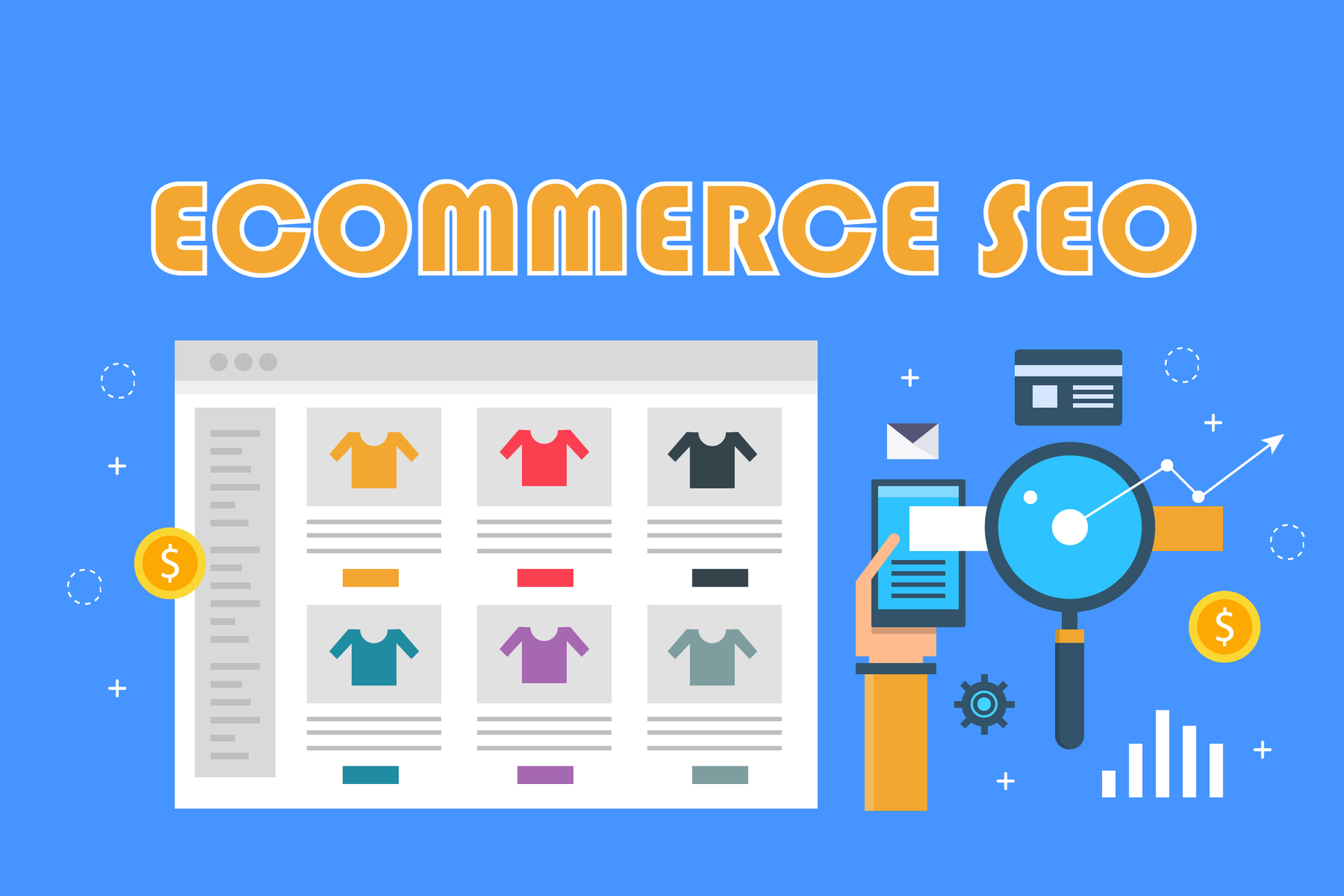In the dynamic world of e-commerce, where competition is fierce and attention spans are fleeting, mastering the art of Search Engine Optimization (SEO) is crucial for the success of online stores. This article explores the fundamental strategies and best practices to optimize e-commerce websites for higher visibility, increased traffic, and ultimately, improved conversions.
1. Introduction to E-commerce SEO
E-commerce SEO encompasses the techniques and strategies used to enhance the online visibility of e-commerce websites in search engine results pages (SERPs). Unlike traditional SEO, e-commerce SEO focuses specifically on optimizing product pages, category pages, and other elements unique to online stores.
In the digital age, where online shopping has become the norm, having a strong online presence is crucial for the success of e-commerce businesses. E-commerce SEO (Search Engine Optimization) plays a vital role in driving traffic to online stores and increasing visibility in search engine results pages (SERPs).
Understanding the Importance of SEO for E-commerce Stores
E-commerce SEO is essential for increasing organic traffic to your online store. By optimizing your website for search engines, you can improve your visibility and attract more potential customers.
Benefits of SEO for E-commerce
- Higher visibility in search engine results.
- Increased organic traffic.
- Better user experience.
- Improved conversion rates.
- Long-term sustainability and growth.
2. Understanding the Importance of SEO for E-commerce
Increasing Visibility
SEO aims to improve a website’s ranking in search engine results, making it more visible to potential customers actively searching for products or services.
Driving Organic Traffic
By optimizing for relevant keywords and providing valuable content, e-commerce websites can attract organic traffic from search engines, reducing reliance on paid advertising.
Boosting Conversions
Effective SEO not only drives traffic but also ensures that visitors are more likely to convert into customers, ultimately increasing sales and revenue. Unlock the full potential of your online presence with the proven techniques of the Best SEO Agency in Surat.
3. Key Elements of E-commerce SEO
Keyword Research and Optimization
Identifying relevant keywords with high search volume and optimizing product pages, category pages, and metadata accordingly.
On-Page SEO Techniques
Optimizing page titles, meta descriptions, headings, and URLs to improve search engine visibility and user experience.
Technical SEO
Addressing technical issues such as site speed, crawlability, and mobile-friendliness to ensure optimal performance in search results.
Content Marketing Strategies
Creating high-quality, informative content such as blog posts, buying guides, and product reviews to attract and engage potential customers.
4. Best Practices for SEO
Mobile Optimization
Given the rise of mobile shopping, ensuring that e-commerce websites are fully optimized for mobile devices is essential for reaching a wider audience.
User Experience (UX) Enhancement
Providing a seamless and intuitive browsing experience, from navigation to checkout, can significantly impact conversion rates and customer satisfaction.
High-Quality Product Descriptions
Crafting unique and compelling product descriptions that not only describe the features but also highlight the benefits and value proposition of each item.
Optimized Product Images and Videos
Using high-resolution images and videos that showcase products from multiple angles and provide detailed information to assist customers in their purchasing decisions. Unlock your brand’s potential with the innovative strategies of the Best Digital Marketing Agency.
5. Leveraging Social Media for E-commerce SEO
Social Media Integration
Integrating social sharing buttons, enabling user-generated content, and leveraging social media platforms to drive traffic and engagement.
Influencer Marketing
Partnering with influencers and brand advocates to promote products and amplify the reach of e-commerce websites across social channels.
6. E-commerce SEO Tools and Resources
Google Analytics
Analyzing website traffic, user behavior, and conversion metrics to track the effectiveness of SEO strategies and identify areas for improvement.
SEMrush
Conducting competitive analysis, keyword research, and backlink audits to inform SEO strategies and tactics.
Moz
Monitoring website performance, tracking keyword rankings, and identifying opportunities for link building and content optimization.
Ahrefs
Exploring competitor backlinks, conducting content gap analysis, and identifying potential link-building opportunities to improve search engine rankings.
7. Case Studies of Successful E-commerce SEO Strategies
Example 1: XYZ Clothing Store
Implementing a comprehensive e-commerce SEO strategy, including keyword optimization, content marketing, and social media integration, resulted in a 30% increase in organic traffic and a 20% boost in sales within six months.
Example 2: ABC Electronics
By optimizing product listings, improving site speed, and leveraging influencer partnerships, ABC Electronics saw a 50% increase in search engine visibility and a 25% rise in conversions year-over-year.
8. CommonSEO Mistakes to Avoid
Keyword Stuffing
Overloading product descriptions and metadata with excessive keywords, which can lead to a poor user experience and potential penalties from search engines.
Ignoring Mobile Users
Failing to prioritize mobile optimization can result in lower search rankings and lost opportunities to engage with mobile shoppers.
Lack of Regular Content Updates
Neglecting to update product listings, blog posts, and other content can lead to stale information and decreased search engine visibility over time.
9. Conclusion
In the highly competitive landscape of e-commerce, effective SEO strategies are essential for driving traffic, boosting conversions, and staying ahead of the competition. By implementing best practices, leveraging the right tools and resources, and avoiding common pitfalls, online stores can maximize their visibility and revenue potential in the digital marketplace.
FAQs
- What is the role of keyword research in e-commerce SEO?
- Keyword research helps e-commerce websites identify the terms and phrases potential customers are using to search for products, enabling better optimization of product pages and content.
- Why is mobile optimization important for SEO?
- With an increasing number of consumers shopping on mobile devices, ensuring that e-commerce websites are optimized for mobile is crucial for reaching and engaging this audience effectively.
- How can social media contribute to SEO?
- Social media platforms can serve as valuable channels for driving traffic, building brand awareness, and generating backlinks, all of which can positively impact SEO efforts.
- What are some common technical SEO issues faced by e-commerce websites?
- Technical SEO issues such as slow page load times, duplicate content, and crawl errors can hinder search engine crawling and indexing, negatively impacting search visibility.
- How long does it typically take to see results from SEO efforts?
- The timeline for seeing results from SEO can vary depending on factors such as website age, competition level, and the effectiveness of implemented strategies. However, noticeable improvements in search rankings and traffic can often be seen within a few months of implementing comprehensive SEO initiatives.



